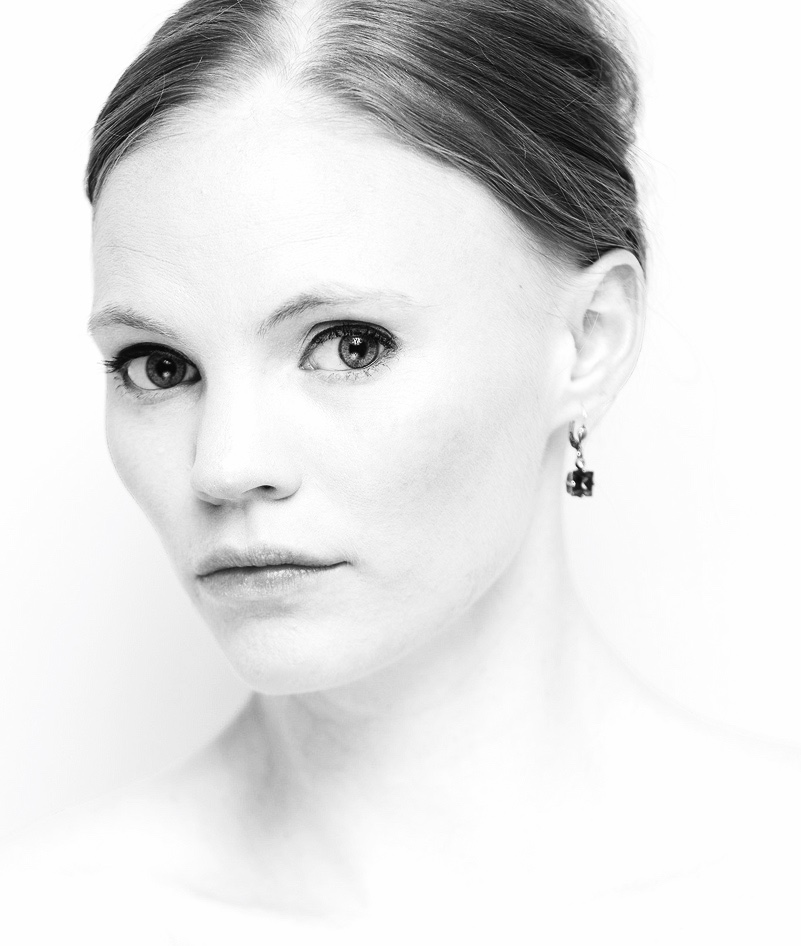So the first part of my detailed account discussed the alternative approaches I took in addition to treatment in order to properly heal myself and mitigate suffering. When there is so little definitive information out there, how does one make the best decisions? Was all of this necessary? When it comes to life or death diagnoses, how does one make that judgment call? I still don’t have any definitive answers, but I experimented. I went with my gut. I’m here, and, while I’m still working on picking up the pieces of my life and putting them together, I’m doing pretty well.

The day I lost (most of) my hair. Photo: Nikola Tamindzic
I realize these posts are more serious; less upbeat. It’s true that in most of my posts – both here and on social media – I remained positive and upbeat. That was 100% my reality this summer. I did feel better than most people told me I would. Fewer side effects – yes. I did manage to get out and about a bit between treatments. From the get-go, I knew I would make it. But, it would be a disservice to everyone to gloss over the less pleasant realities that patients go through – even patients who kick ass. Treatment was not in any way a vacation. It still did completely suck. This is also my reality. The two do not negate each other; having a smooth ride – all things considered – does not in any way minimize the difficulties that I did go through, and continue to experience. Even though I’m doing well, I’m not quite ‘back to normal.’ Here in Part 2 I detail the other, unavoidable, costs of treatment.
Medical Bills and Insurance
Insurance is complicated; medical bills are extremely confusing. I’ve never been here before. I’d never been to this hospital. I’d never really had to deal with insurance. The realities of all this are just starting to sink in. The social worker at the hospital was very nice, but ultimately next to useless. I didn’t even know the right questions to ask, and those that I did ask received dead-end responses. There was nobody to help me navigate. In June I received a bill for over $3k, and I had several bills for smaller amounts so I called the billing department to get clarity on my account. The balance showed just over $2k – nearly $1k less than the first bill alone. Apparently there had been an insurance adjustment of $950 between the time the bill was mailed and when I called. Great for me since I actually called, but had I just gone ahead paid the original bill, I would have lost $1k. No chance I would have gotten that back. This time I was lucky.
That call also clarified the fact that nothing in hospitals is centralized. Each bill came from a separate department, and each had to be settled with that particular department’s billing system. I hung up in frustration because I was beginning to feel overwhelmed. I also received bills with charges for multiple items, and bills for one item alone. Some were for tiny amounts, some not so tiny. One day I finally had the mental capacity to start sorting through them. I had a couple duplicates, so I started sorting through, paper clipping them together, and writing out checks. Why checks? WHO knows. I rarely write checks. But that’s what I decided that day, maybe because I could keep all the papers together in that moment.
Well, the next day I entered them all into excel, item by item. And as I entered them, I found duplicate charges – some of the smaller bills for single items were the same charges included in the larger bills. Wonderful. Just wonderful, for a cancer patient dealing with fatigue and brain fog. Again, I was lucky. I finally paid off the last of my bills a couple weeks ago (I hope!). My medical bills wound up adding up to about $12k since my insurance plan had a relatively high deductible – when you’re healthy and never go to the doctor and your company is small so doesn’t cover it in full, you don’t opt for the significantly more expensive option. Though I did get a discounted rate through the Livestrong program and Cornell, fertility preservation was also not covered. This is something I would love to change – if breast reconstruction is covered, how is fertility preservation not across the board for cancer patients? It makes no sense to me.

The day I lost (most of) my hair. Photo: Nikola Tamindzic
Speaking of insurance, there were plenty of moments of frustration, especially in the beginning. Calls for approval, calls about coverage, calls about I don’t even know what. One episode in June was particularly bad. I spent over a week going in endless loops between insurance and the pharmacy and my doctor’s office, each saying they were waiting on something from someone else to approve a particular drug that was supposed to suppress and protect my reproductive systems. It was utterly maddening. I was frustrated, probably had some hormone situation going on as the previous injection was wearing off, and all I could think about was that I needed this injection to protect myself, and I wound up in tears numerous times. My stress levels were through the roof. It is not lost on me that it was immediately after this drama that I wound up in the ER with a fever and an infection from my PICC.

The day I lost (most of) my hair. Photo: Nikola Tamindzic
Assistance
There is help out there, but it’s complicated to begin with, and even moreso when you’re tired and even reading a fluffy novel is too taxing on your concentration. I’ve done the research and navigating these charities is tricky. There are not a ton for young adults, and of those that do exist, many I do not qualify for, either because I have the wrong cancer or I’m not quite young enough. I found a couple, but just missed the deadlines. Cancer in young adults comes with its own host of issues; one foundation sums it up quite well in the name they’ve given their grant: Life Interrupted.
It’s not just the immediate costs of cancer treatment; it’s the interruption of income. The income stops, but the bills don’t. It’s the interruption of your career. And in my case, it’s the cessation of one career and the attempt to create a new one. And in any case it takes a while to get back on your feet. Disregarding the typical struggles of creating a new career for any random individual, cancer survivors have to manage fatigue and chemo brain. Jumping back into a full time job right after treatment was not feasible for me, nor would it have been advisable. All of this takes time. My life has most certainly been interrupted and disrupted. I did not financially plan for cancer. I was always healthy; medical expenses were never something I worried about. Maybe it was naive of me, but really what evidence did I have to work with, other than my past history of near perfect health?

The day I lost (most of) my hair. Photo: Nikola Tamindzic
Life is Expensive
Through all of this, which began seven months ago, I had – and continue to have – my regular day to day, month to month expenses: grad loans, car payments, car insurance, to name a few. And since August, medical insurance out of pocket. And then there’s all the treatment-related incidentals like gas and tolls and parking and train fares and taxis and Vias to get to the hospital and doctor’s appointments. When you have that many, these costs add up rather quickly. Especially when you have no income because you can’t work for the precise reason you are going to these appointments. I worked as long as I possibly could, but the logistics of working simply did not make sense for me to be able to continue. And at the beginning of this whole thing, I felt pretty shitty. So it wouldn’t have even been fair to my students for me to continue.

The day I lost (most of) my hair. Photo: Nikola Tamindzic
The diagnosis process is a whirlwind, with little time to consider the implications of what’s next. You focus on the next appointment, doing your best to quell the moments of panic and lift the cloud of uncertainty. I was lucky that things moved as quickly as they did. Appointments opened up out of the blue when there were originally none for a couple weeks. I got in before it got worse. But, when things move so quickly, you have to act quickly and make decisions. And you make these decisions in a scary, confusing haze of uncertainty.
My focus was on getting through treatment; my focus was on getting to my sister’s wedding in the best health possible. I did a lot of reflecting on my past and thinking about my future. I had fuzzy ideas that slowly became clearer and clearer and made vague plans, and things have actually been falling into place. But I did not have the wherewithal to plan months in advance. And certain things simply did not work out in my favor as I hoped they would. My next post will cover what life is like after treatment.
Comments Off on The Cost of Cancer: Part 2